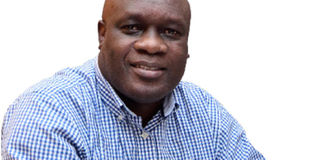Which journalists do you remember?

Odoobo C. Bichachi
What you need to know:
The high recognition of political presenters also indicates that perhaps politics tends to stick with audiences more than any other genre of news
This week, I have been reading the June 15, 2022 Reuters Institute Digital Report. One of the sections that caught my attention was the question of which journalists do audiences tend to follow and why?
The rise of new media, the growth of celebrity journalism and market journalism, the shortened attention span of news audiences, the increased diversity of media platforms and outlets, the miniaturisation of communication gadgets that have made hand-held mobile phones a tool of communications convergence, etc have has made it inevitable to inquire into this question.
Well, with so much information around us, and so many people sharing it on different platforms, who do audiences remember and why?
To answer these questions, researchers Dr Craig T. Robertson and Nic Newman conducted a survey in six countries, namely: USA, UK, Brazil, Germany, France and Finland. They categorised journalists by the platforms on which they primarily operate, namely: online, broadcast (TV, radio and others), and print.
This is what they found, inter alia:
Overall, political journalists tend to be more popular and recognisable by audiences, oftentimes than the brand they work for. In the US in particular, journalists who express a high degree of opinions and political partisanship are the most recognised.
The other finding was that overall, television presenters and anchors had the highest recognition at 84 per cent. In France, Brazil and Finland, the percentage of television presenters and anchors recognised is higher at 90 per cent
In the UK, Germany, Finland and USA, a few columnists were recognised and most of these were from print except for the USA where they were primarily from online platforms. The reasons for this pattern no doubt relate to the level of media consumption, platform affinity and engagement, as well as overall visibility and reach. It cements the perception that while print journalism may be the dough of journalism, broadcast – particularly television – is the icing while online is only the “side-dish”.
“The prominence of television news anchors and commentators when compared with journalists from digital or print outlets also reminds us of the importance of this medium in forging a deeper connection with audiences,” the report notes.
The high recognition of political presenters also indicates that perhaps politics tends to stick with audiences more than any other genre of news like business or sports.
The study also found that news brands in Europe – UK, Germany, and Finland – generally still towered above the individual journalists which was the opposite in USA and Brazil – and to an extent in France, pointing to the strength of public media in the former countries and the strength of online and private media in the latter.
While new media (social media) has been touted as powerful, omnipresent, and effervescent, these findings show that “…there is a power that TV – far more than social media on its own – has to cement the names and faces of ‘celebrity’ journalists who anchor for major networks and popular shows.”
It would be interesting to conduct a similar study in Uganda and see what journalists’ names pop up in the minds of Uganda media audiences at the drop of a hat, and if they tower above the brands they ply their trade.
*****
HAVE YOUR SAY
Prof David Bakibinga: #NTVNews, @cbichachi is NTV unable to translate words such as queen, district and university into Luganda during NTV Akawungeezi? The Department of Literature, Languages and Communication at Makerere University can help.
Public Editor: Thank you for this feedback that you have shared consistently. The Editorial Board Committee recommended the development of a Luganda language style-book for NMG-Uganda to guide the local language publications and programmes. In the meantime, editors and producers should indeed, as you have advised, be able to reach language experts at Makerere for translations that enrich the bulletins.
Name withheld: I am the president of Jajamin Youth Group claimed to be terrorising the streets of Arua town. I request through your office to have access to this ‘stereotyped gang” (sic) so that the public could get the reality on the ground about this network through some factual narration to Daily Monitor. Thank you.
Public Editor: Thank you for reaching out to us. Your note and contact details have been shared with editors for consideration and possible engagement.
Send your feedback/complaints to [email protected] or call/text on +256 776 500725



